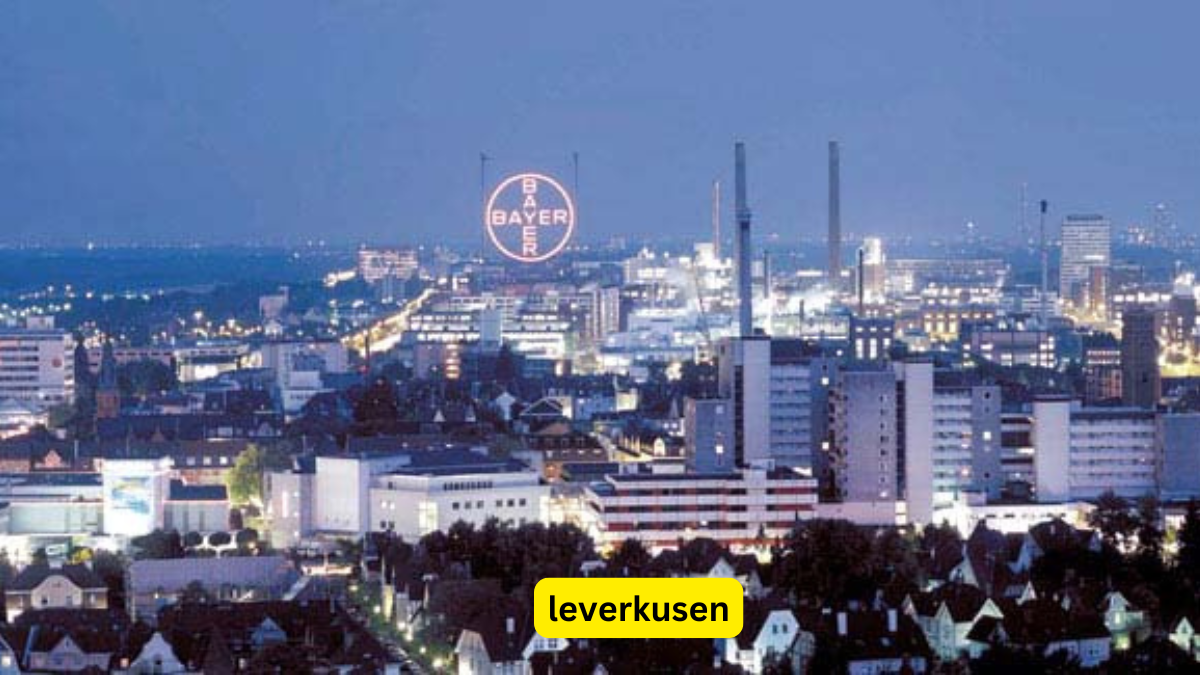Bayer Leverkusen, often referred to simply as Leverkusen, is one of Germany’s most notable football clubs. Founded in 1904 by employees of the pharmaceutical company Bayer AG, the club has become a staple in both domestic and international competitions. Known for its attacking style of play and development of young talents, Leverkusen continues to establish itself as a force to be reckoned with in German football.
Early History and Formation
Bayer Leverkusen was established in the town of Leverkusen, North Rhine-Westphalia, when employees of the Bayer pharmaceutical company petitioned for the formation of a sports club. Initially, the club was created for gymnastics, but over time, football emerged as the dominant sport. The football section of Bayer 04 Leverkusen was officially founded on July 1, 1907.
Throughout the early 20th century, the club competed in various regional leagues, slowly rising through the ranks. However, it wasn’t until the 1970s and 1980s that Bayer Leverkusen began to make a name for itself in German football, earning promotion to the Bundesliga in 1979.
Success in the Bundesliga
Since its promotion to the Bundesliga, Leverkusen has consistently been a strong competitor in Germany’s top football league. Although the club has not yet secured a Bundesliga title, it has come close several times, often finishing in the top four. Leverkusen’s most famous near-miss came in the 2001-2002 season, when they finished as runners-up in the Bundesliga, DFB-Pokal, and the UEFA Champions League.
Leverkusen has long been known for its attacking style of play, emphasizing creativity and speed in its offensive strategy. The club has produced and attracted top talents over the years, including players like Michael Ballack, Dimitar Berbatov, and Kai Havertz, who have all gone on to become stars in world football.
Leverkusen’s European Campaigns
One of Bayer Leverkusen’s most notable achievements came in 1988 when they won the UEFA Cup, now known as the UEFA Europa League. This was Leverkusen’s first major European trophy and established the club as a formidable presence in continental competitions.
In 2002, Leverkusen reached the UEFA Champions League final, a remarkable feat for the club. Although they were defeated by Real Madrid in a hard-fought match, the campaign cemented Leverkusen’s reputation as a team capable of competing with Europe’s elite. The team’s run to the final that year, featuring players like Michael Ballack and Lucio, is still remembered fondly by fans and neutrals alike.
Development of Young Talent
Bayer Leverkusen has earned a reputation for being a club that develops young talent. The club’s youth academy is regarded as one of the best in Germany, consistently producing players who go on to have successful careers in both the Bundesliga and international football.
In recent years, players like Kai Havertz, who began his career at Leverkusen, have become standout examples of the club’s ability to nurture future stars. Havertz, in particular, caught the attention of top European clubs with his performances at Leverkusen before transferring to Chelsea in 2020.
Leverkusen also focuses on scouting young players from other countries, often signing and developing them into key players. Leon Bailey, a Jamaican winger, is another example of the club’s ability to identify and enhance raw talent, turning him into one of the most exciting players in the Bundesliga during his time at the club.
Rivalries and Fanbase
Leverkusen’s most notable rivalry is with 1. FC Köln, the nearby club from Cologne. Known as the Rhein Derby, the matches between these two clubs are highly anticipated and fiercely contested by fans. The rivalry stems from geographic proximity and historical competitiveness, making these encounters some of the most heated fixtures on the Bundesliga calendar.
Despite the club’s relative success, Leverkusen has often been criticized for its corporate ownership, as it is backed by Bayer AG. This has sometimes led to perceptions that the club lacks the traditional fan culture associated with German football. Nevertheless, Leverkusen’s supporters, known as the Werkself, are passionate and loyal, consistently filling the BayArena and supporting their team both at home and abroad.
Modern Era: Achievements and Aspirations
In the modern era, Bayer Leverkusen remains a consistent force in both the Bundesliga and European competitions. The club has regularly qualified for the UEFA Champions League or Europa League, maintaining its position as one of Germany’s top teams. Under various managers, Leverkusen has continued its tradition of attacking football, earning plaudits for its exciting style of play.
Despite their frequent qualification for European competition, Leverkusen’s ultimate ambition remains to win the Bundesliga title. The club has come agonizingly close on several occasions, and the desire to break that barrier and win their first domestic league title remains as strong as ever.
The Future of Bayer Leverkusen
Looking ahead, Bayer Leverkusen is well-positioned to remain a dominant force in German football. The club’s focus on developing young talent, combined with its consistent performance in the Bundesliga and European competitions, ensures that Leverkusen will continue to compete at the highest level.
Recent investments in the squad and a continued emphasis on nurturing young players suggest that Leverkusen’s ambitions are as high as ever. With a dedicated fanbase and a solid financial foundation thanks to Bayer AG, the club is well-equipped to challenge for trophies in the coming years.
In conclusion, Bayer Leverkusen is a club with a rich history, strong traditions, and a bright future. From its humble beginnings as a company team to becoming a household name in European football, Leverkusen’s journey has been one of consistent growth and success. With its continued focus on developing talent and playing attractive football, the club is poised to remain a key player in both German and international football for years to come.

